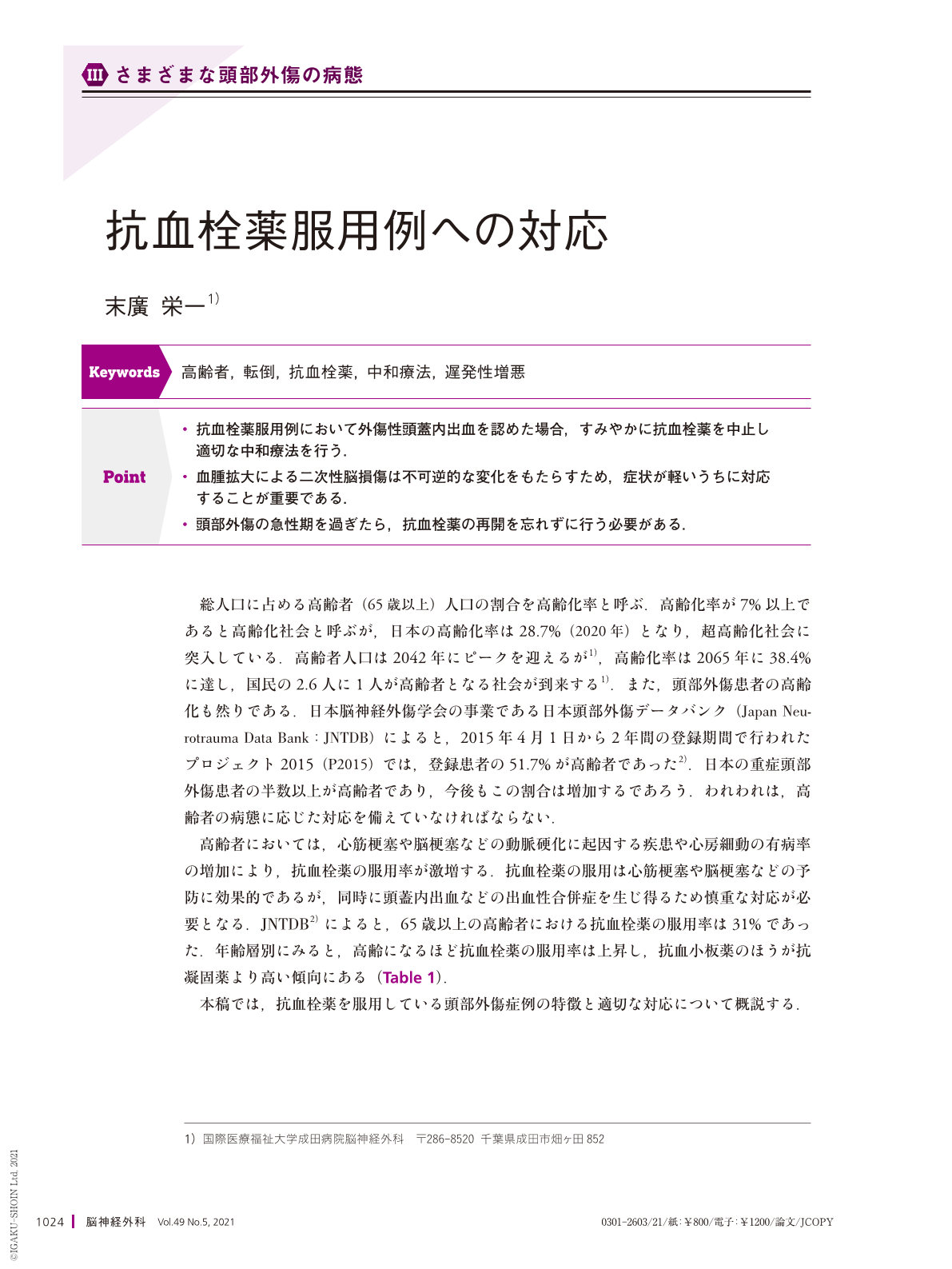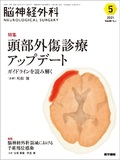Japanese
English
- 有料閲覧
- Abstract 文献概要
- 1ページ目 Look Inside
- 参考文献 Reference
Point
・抗血栓薬服用例において外傷性頭蓋内出血を認めた場合,すみやかに抗血栓薬を中止し適切な中和療法を行う.
・血腫拡大による二次性脳損傷は不可逆的な変化をもたらすため,症状が軽いうちに対応することが重要である.
・頭部外傷の急性期を過ぎたら,抗血栓薬の再開を忘れずに行う必要がある.
More than half of the patients with severe head injuries are elderly people in Japan due to the impact of entering a super-aging society. Elderly people take antithrombotic drugs at a high rate. According to the Japan Neurotrauma Data Bank, many patients with head injuries taking antithrombotic drugs sustain falls, indicating an increased risk of deterioration due to low-energy trauma. It has also been pointed out that many hemorrhagic lesions occur due to the effects of antithrombotic drugs, and there is a risk that hematoma will increase later. As an appropriate response in such patients, if bleeding findings are noted on head CT, discontinuation/reversal of antithrombotic drugs should be considered even if the severity is mild. Reversal therapy should be performed in an appropriate manner as quickly and reliably as possible. Some effects of reversal therapy have been reported in small-scale observational studies. Discontinued antithrombotic drugs should be resumed in the neurotrauma subacute phase. Resuming antithrombotic drugs reduces the risk of ischemic complications, but increases the risk of bleeding complications. To summarize, the benefits of resuming antithrombotic drugs have been reported, and it is recommended that antithrombotic drugs be resumed 3-10 days after injury.

Copyright © 2021, Igaku-Shoin Ltd. All rights reserved.


